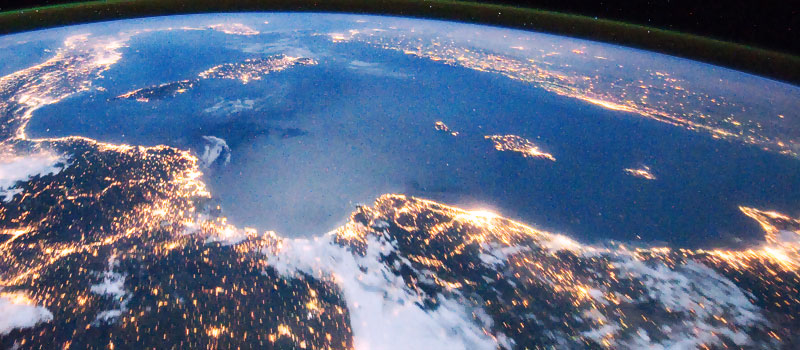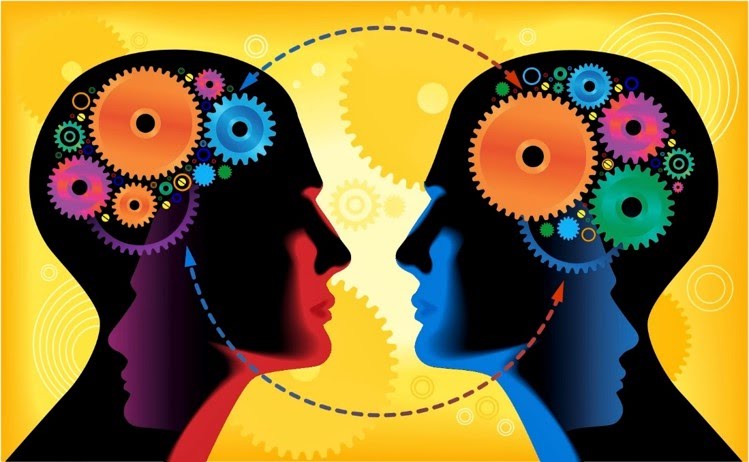The word ‘evolution’ is overused and misused, coming to mean everything from gradual societal improvement to technological innovation. Strictly speaking however, evolution has nothing to do with human affairs. Indeed, I submit that evolution has been stuck since “fully modern humans” emerged.
My worldview is that human history, which began with the invention of writing, has not been a slowly ascending spiral of progress but a now rapidly descending spiral of fragmentation, culminating in the ecological crisis and crisis of consciousness everyone on earth is facing today.
Of course, there have been astounding scientific and technological advancements, as well as notable advancements in civilization, such as the elimination (at least legally) of slavery and women’s suffrage, as well as the reduction of poverty and the increase in education worldwide.

The core truth is however, as I heard a religious teacher say near the end of his life, “No teacher, however illumined, has changed the basic course of humankind.”
When I first heard that statement, it both grabbed me and made me question. Didn’t Jesus, for one, change the course of humanity?
I’d already come to feel the reason so many people in the West, and even the Middle East, have a strong feeling for Jesus in the 2000-plus years since he was crucified, is that though his mission failed, he saw it through, and didn’t lose faith in God and humanity.
The Buddha is a more difficult case, because he did ignite an inner revolution that deeply altered the course of an entire region, from its origins in India spreading to China, Tibet, Japan and beyond. In recent decades, the importation and transplantation of Buddhism to the West to the dead rootstock of the West has coincided with its decline in the East.
Apart from these and other examples, including Mohammed, the core question, which I asked for weeks after hearing the above statement, is: What is the basic course of humankind, and can it change?
Is human consciousness evolving, in the sense that that the human heart, in general, is growing more expansive and the human mind more capacious?
Or is the reverse happening—the human heart is shrinking, and humans today are shadows of the richness and character of our forbears, as violent and barbaric as they could be and often were?
More telling is humankind’s relationship with nature, and the mystery within and beyond nature. It mirrors the increasing lack of relationship we have with each other.
Looked at from a whole perspective, it’s impossible to argue that we have been progressing as a species, rather than becoming increasingly destructive to the earth, on which we arose along with all other animals. Through the juggernaut of global capitalism, the dominant view is to see earth as resource to deplete before humans colonize Mars.
As man continues to rapaciously plunder the planet, the human heart is shrinking, and more and more people are becoming, in the vernacular, shitheads. Many, perhaps most young people have given up on humanity, and the vast majority of people seek escape in myriad ways. Taking care of ‘me,’ in one form or another, has become the highest value, not just in the West, but increasingly around the world.
Despite the growing reality of darkness and the escalation of evil, and the reactions of despair and depression, something else may be happening however. I say ‘may’ not to hold out hope, but to consider and suggest another possibility.
Humankind is facing, in the cliché of our time, “an existential crisis.” The idea of an ascending spiral of human civilization and consciousness is simply false. The descending spiral of consciousness and civilization is accurate. Is there another future for humanity?
The human brain has not only the capacity for accumulating tremendous knowledge through science, and translating it into astounding technologies (the ultimate being the replication of the functions of thought itself through AI).
The human brain also has the capacity to be completely, attentively still, and commune with the silence, mystery and sacredness that pervade nature and the cosmos.
To this point, we humans have been externalizing creatures. For many tens of thousands of years the imperative of survival in the hardships of the wilderness drove an outward orientation.

However, now that man has tamed or ‘conquered’ nearly all the wilderness that the entire earth once was, and we have entered the so-called Anthropocene Age, the accumulation of knowledge is leaving less and less inner ace for the highest capacity of Homo sapiens—that of awakening transcendent consciousness. Doing so has become a matter of individual and collective survival.
At some point, and this is that point in our age at least, a great leap becomes as simple as turning around and taking the first step.
Unlike just before the cognitive revolution about 100,000 years ago in East Africa, humankind doesn’t face a physical bottleneck but a psychological, emotional and spiritual bottleneck, for which there has to be conscious rather than subconscious breakthrough.
Like the cognitive breakthrough however, which ushered in “fully modern humans,” it will only take only a few thousand people at the right time to open the way ahead, away from the inwardly dead humans we have become to the inwardly alive and growing human beings we can be.
Martin LeFevre

